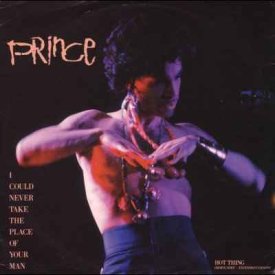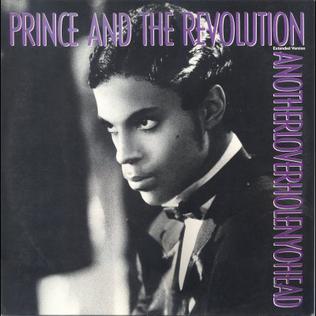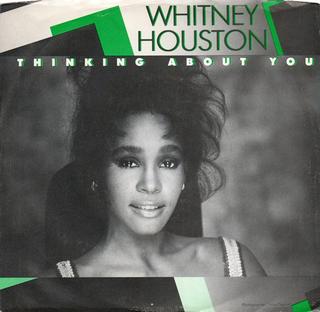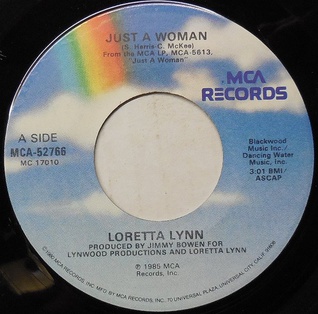
"Cruel Summer" is a song by English girl group Bananarama. It was written by Bananarama and Steve Jolley, Tony Swain, and produced by Jolley and Swain. Released in 1983, it was initially a stand-alone single but was subsequently included on their self-titled second album a year later. The song reached number eight on the UK Singles Chart in 1983 and the group appeared on the BBC's Top of the Pops that summer, and after its inclusion in the 1984 film The Karate Kid, it reached number nine on the US Billboard Hot 100.

The Goonies: Original Motion Picture Soundtrack is the official soundtrack album released by Epic Records in conjunction with the 1985 film The Goonies. The album includes the top ten single "The Goonies 'R' Good Enough" by singer Cyndi Lauper, who had a cameo in the film. The album was released in LP and cassette format internationally, and a limited CD release in some countries.
Goon Squad was a dance music group assembled by producer Arthur Baker. Their song "Eight Arms to Hold You" went to number one on the Billboard Hot Dance Club Play chart in 1985. The song was used for the movie The Goonies; although the main scene it was used in was deleted, it was nevertheless included on the soundtrack. The scene involved the Goonies being attacked by a giant octopus as they waded through tunnels. They defeat the octopus by throwing a Walkman playing the song into its mouth, which causes it to start dancing. The scene was cut for being too cartoony. The group featured vocals from Will Downing, Craig Derry, Bobby Coleman, Tina B., and Cindy Mizell.

"I Could Never Take the Place of Your Man" is a song written and recorded by American musician Prince. It was released as the final single from his ninth studio album Sign o' the Times (1987), becoming the third top-ten hit off the album. It has since been covered by numerous artists.

"Do Me, Baby" is a 1981 ballad performed by Prince, from his fourth album, Controversy. Although Prince is credited as the sole writer for the song, his former bassist and childhood friend André Cymone claimed to have written it. It was released as the third and final US single from the album. It was later included on his 1993 compilation The Hits/The B-Sides. In 1986, the song was notably covered by R&B singer Meli'sa Morgan. It was featured in one of the opening scenes of the 2007 film Rush Hour 3, with Chris Tucker's character singing along while listening to it on his headphones and simultaneously directing traffic with the dance sequences of Michael Jackson.

"Anotherloverholenyohead" is a 1986 song by Prince and The Revolution, from the album Parade, the soundtrack to the film Under the Cherry Moon. The song is essentially a solo performance by Prince, with backing vocals from Susannah Melvoin, and the horn section of Eric Leeds and Atlanta Bliss on the extended version. The song also features a string arrangement by Clare Fischer. The song is set in a minor key, and written around a piano chord sequence, although the arrangement emphasizes an upfront guitar synth and a drum machine. The lyrics are about a man trying to reclaim a lover who is intent on leaving him for another. The song's title is a combination of the main idea of the song, and the line "U need another lover like u need a hole in yo head" from the chorus. The single received a 12" extended release with intricate piano work, a horn overdub and some dance commands from Prince.

"Deep Cover" is the debut solo single by American rapper Dr. Dre and his first track released after the breakup of N.W.A. The track was recorded for the soundtrack of the film Deep Cover by Solar Records and distributed by Epic Records. The song features fellow American rapper Snoop Doggy Dogg in his first appearance on a record release. Shortly after the song's release Dr. Dre and Snoop Dogg remade the song and released it as "One Eight Seven" under Death Row Records. In 1994 "One Eight Seven" was remixed for the reissue of the Deep Cover soundtrack and retitled "187um".

"Ghostbusters" is a song written by American musician Ray Parker Jr. as the theme to the 1984 film Ghostbusters, and included on its soundtrack. Debuting at number 68 on June 16, 1984, the song peaked at No. 1 on the Billboard Hot 100 on August 11, staying there for three weeks, and at No. 2 on the UK Singles Chart on September 16, staying there for three weeks. The song reentered the UK Top 75 on November 2, 2008 at No. 49 and again on November 5, 2021, at No. 38.

"Tell Me When" is a song by English synth-pop band the Human League, released in December 1994 by East West Records as the first single from their seventh album, Octopus (1995). Written jointly by lead singer Philip Oakey and Paul C. Beckett, the song was produced by Ian Stanley. It peaked at number six on the UK Singles Chart, while reaching number four on the UK Dance Chart. In the US, it peaked at number 31 on the Billboard Hot 100, number 15 on the Billboard Hot Dance Club Play chart and number eight on the Cash Box Top 100. The music video for the song was directed by Andy Morahan and filmed in the Czech Republic.

"This Ain't a Scene, It's an Arms Race" is a song by American rock band Fall Out Boy and the second single from their commercially successful third studio album Infinity on High (2007). The song officially debuted on November 21 at the American Music Awards and impacted US radio on December 5. The music was composed by vocalist and guitarist Patrick Stump and the lyrics were penned by bassist Pete Wentz, following the band's songwriting approach which first began with some songs on their 2003 album Take This to Your Grave. Production was handled by Neal Avron, who also produced the band's previous From Under the Cork Tree album. Commenting on the band's decision to pick the track as the first single, Wentz said "There may be other songs on the record that would be bigger radio hits, but this one had the right message."

"I Could Fall in Love with You" is a song recorded by English synth-pop duo Erasure. Written by band members Vince Clarke and Andy Bell, the track is the first single released from Erasure's thirteenth studio album Light at the End of the World. Remixes are provided by Jeremy Wheatley and Lee Monteverde, and a James Aparicio mix is available exclusively in the UK iTunes Store. The single contains a non-album B-side titled "I Like It". "I Could Fall in Love with You" was released by Mute Records in the UK on 2 April 2007 and in North America the following day. It was the first Erasure single to be commercially released on 7" vinyl since "Run to the Sun" 13 years previously.

"Shame" is the debut single by American singer Evelyn "Champagne" King, written by John H. Fitch Jr. and Reuben Cross. It was released in 1977 by RCA Records as part of King's debut album, Smooth Talk. The extended remix was produced for the twelve-inch vinyl single and would later replace the album version of the song in late-1970s reprints of the album. "Shame" was successful on Billboard music charts and would become one of King's signature songs, though it varied on international music charts. The song was covered by Zhané for the 1994 film A Low Down Dirty Shame and Kim Wilde in 1996.
"Somewhere", sometimes referred to as "Somewhere (There's a Place for Us)" or simply "There's a Place for Us", is a song from the 1957 Broadway musical West Side Story that was made into films in 1961 and 2021. The music is composed by Leonard Bernstein with lyrics by Stephen Sondheim.

"I Can Dream About You" is a song written and performed by American singer Dan Hartman on the soundtrack album of the film Streets of Fire. Released in 1984 as a single from the soundtrack, and included on Hartman's album I Can Dream About You, it reached number 6 on the Billboard Hot 100.

"Party Rock Anthem" is a song by American electronic dance music duo LMFAO, featuring singer Lauren Bennett and producer GoonRock. It was released as the first single from their second and final studio album Sorry for Party Rocking in 2011.

"Thinking About You" is the fifth single by American singer Whitney Houston. It was written by Kashif Saleem and La Forrest "La La" Cope for Houston's debut studio album Whitney Houston (1985), while production was helmed by the former, released in October 1985. Even though it was not promoted as a single to top 40 radio stations, "Thinking About You" became a top 10 hit on the Hot Black Singles chart in the United States. It later appeared as the B-side to Houston's 1986 single, "Greatest Love of All".

The singles discography of American country artist Dottie West contains 59 singles released as a solo artist, 12 singles released as a collaborative artist, 3 promotional singles and 1 other charting song. West signed with RCA Victor Records in 1963, having her first Top 40 hit the same year. It was followed in 1964 by "Love Is No Excuse", a duet with Jim Reeves that became West's first top 10 hit. In 1964, she also released "Here Comes My Baby". The song reached number 10 on the Billboard Hot Country Singles chart and became the first song by a female country artist to win a Grammy award. From her 1966 album, West issued four singles, including the top 10 hits "Would You Hold It Against Me" and "What's Come Over My Baby". Over the next two years she had major hits with "Paper Mansions", "Like a Fool", "Country Girl", and "Reno". In 1969, West collaborated with Don Gibson on "Rings of Gold", which reached number 2 on the Billboard country chart. In 1973, she released a single version of a commercial jingle originally used by The Coca-Cola Company. Entitled "Country Sunshine", the song became West's biggest hit, reaching number 2 on the country songs chart and number 49 on the Billboard Hot 100. The song also nominated her for her eleventh Grammy. After releasing the top 10 hit "Last Time I Saw Him" (1974), West's chart hits declined and she was dropped from RCA in 1976.

The singles discography of American country artist, George Jones, contains 182 singles. Of the total, 136 were released with Jones as the solo artist. In addition, 31 were issued with Jones being part of a collaboration. Thirdly, eight singles were issued with Jones being part of a featured act. Fourthly, seven released were promotional singles. Additionally, 14 songs that are not released as singles are included that made any major chart. Finally, 21 music videos which were first issued as singles are also listed. Jones had his first chart success in 1955 with several top ten Billboard Hot Country Songs singles: "Why Baby Why", "What Am I Worth" and "You Gotta Be My Baby". After several more top ten releases, "White Lightning" became his first to top the Billboard country chart. Along with "Who Shot Sam", both singles were also his first to make the Hot 100 charts.

Can I Sleep in Your Arms/Lucky Ladies is a studio album by American country artist Jeannie Seely. It was released by MCA Records in November 1973 and was her ninth studio project. It consisted of 11 tracks, four of which were written by songwriter Hank Cochran. Among the tracks were six songs originally released as singles: "Tell Me Again", "Alright I'll Sign the Papers", "Pride", "Farm in Pennsyltucky", "Can I Sleep in Your Arms" and "Lucky Ladies". Its highest-charting singles were the latter two releases, reaching the US country top ten and top 20 respectively. The album itself made the top 20 of the US country chart during the same period. The project received reviews from music publications following its original release.

"Just a Woman" is a song composed by Stewart Harris and Carlotta McGee. It was originally recorded by American country artist Loretta Lynn. It was released as a single and became a minor hit on the American country music charts in 1986. It was released on an album of the same as well.


















